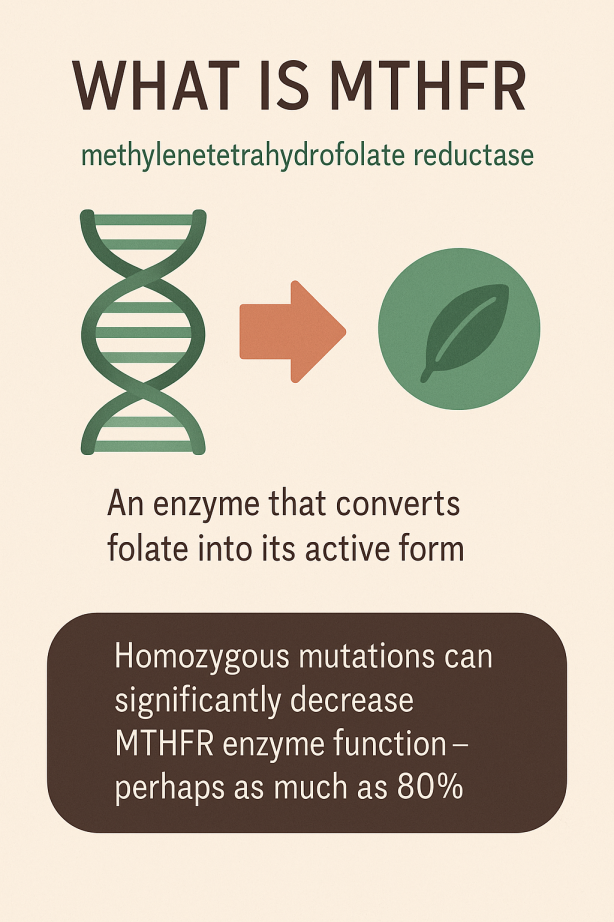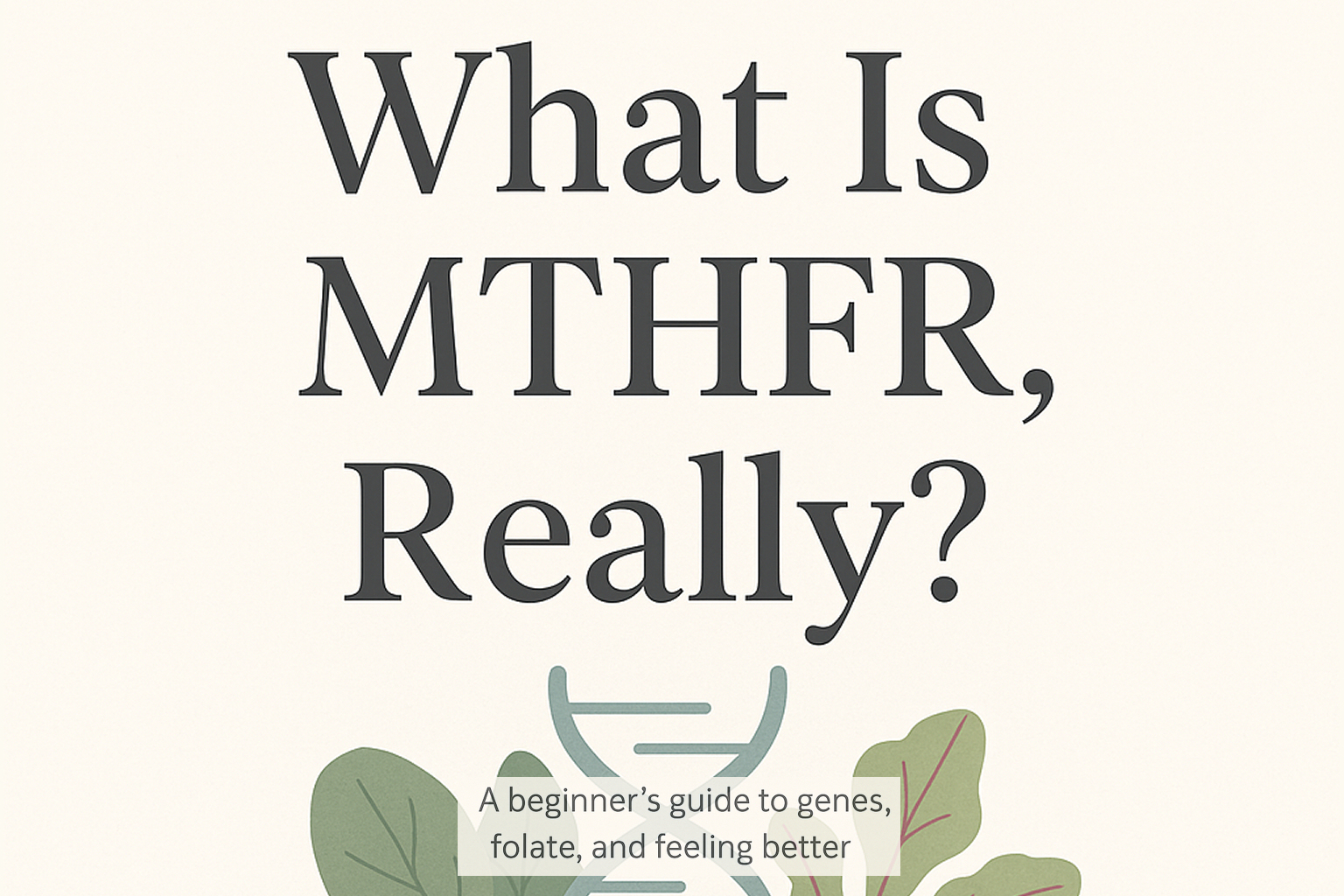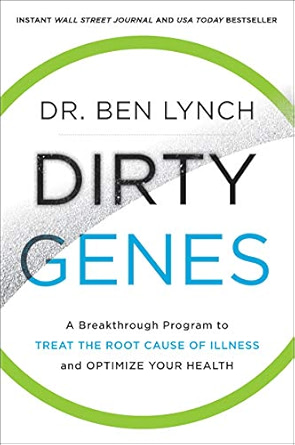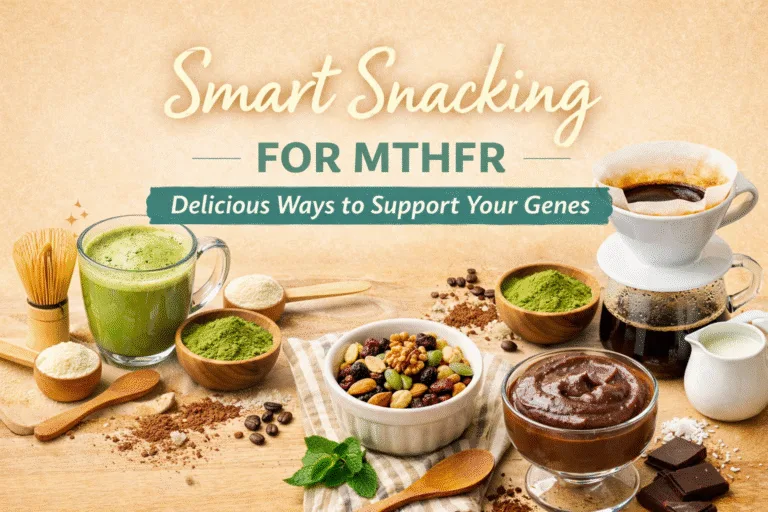What Is MTHFR, Really?
You may have heard mention of MTHFR, maybe even seen it thrown around in wellness circles or sprinkled into supplement ads. But what is it, really—and why does it matter?
🧬 Let’s Start with the Basics
MTHFR stands for methylenetetrahydrofolate reductase (don’t worry, no quiz at the end). It’s an enzyme your body uses to process folate—a B vitamin crucial for many processes, including detoxification, hormone balance, mood regulation, and DNA repair.
But here’s the twist: not everyone’s MTHFR enzyme works the same.
Some people carry gene mutations (or “variants”) that make this enzyme less efficient. This can lead to trouble converting folic acid (the synthetic form often added to fortified foods) into the active form your body actually needs—methylfolate.
That’s where things can get complicated… and personal.
💡 Why This Hit Home for Me
After my mom’s diagnosis, we decided to take a deeper look at our family’s genetic makeup. Through comprehensive genetic testing, we discovered she was homozygous for the C677T MTHFR mutation—and so am I.
I can’t help but wonder: What if Mom had known this 20 years ago? What if everyone knew their MTHFR or COMT status and could make choices based on these genetic markers? Could supporting methylation with the right nutrients prevent some of the disease so prevalent in our society? We’ll never know for sure—but this experience lit a fire in me. I started digging, learning, and making small changes that helped me feel more like myself again.
And I want to help you do the same—without the overwhelm.

🧬 So What Happens If You Have an MTHFR Mutation?
Depending on which variants you carry (the most common being C677T and A1298C), your body might not be making enough methylfolate. This matters because methylfolate helps run the methylation cycle—a core process that affects energy, brain health, detoxification, and more.
Symptoms of poor methylation can look like:
- Brain fog
- Anxiety or mood swings
- Hormonal imbalance
- Fatigue
- Poor detox or sensitivity to toxins
The good news? Diet and lifestyle tweaks can make a real difference. But first—you need to know your status.
🧪 How to Find Out If You Have an MTHFR Mutation (It’s Easier Than You Think!)
If you’ve already done a DNA test through AncestryDNA, 23andMe, or a similar service, you don’t need to retest! You can simply download your raw genetic data and run it through a decoding tool like Genetic Lifehacks (my personal favorite!).
📝 Here’s How:
- Log into your DNA testing account.
- Go to your settings and look for an option like “Download Raw DNA Data.”
- Follow the prompts to save your file to your computer.
- Head to Genetic Lifehacks and upload your file.
- You’ll receive a detailed report showing your MTHFR status and other relevant genes—like COMT and MTRR—that impact methylation.
🧠 Beyond MTHFR: COMT and the Bigger Picture
While MTHFR gets most of the attention, it’s only one piece of the methylation puzzle.
For example, COMT (Catechol-O-Methyltransferase) is another key gene that helps regulate neurotransmitters like dopamine, epinephrine, and estrogen. If you have a slow COMT variant (yep, hi, that’s me!), your body may struggle to clear stress hormones or tolerate high doses of methylated supplements.
This is why bio-individuality matters. What works beautifully for one person may be too much for someone else.
🌿 What You Can Do
Once you know your genetic profile, you can:
- Choose methylated B vitamins (like methylfolate instead of folic acid)
- Focus on folate-rich whole foods (like leafy greens, beets, and lentils)
- Adjust supplements and diet to your body’s unique needs
- Support detox pathways through sleep, hydration, and gentle movement
- Understand why certain medications, stressors, or foods might hit you differently
☀️ Final Thoughts
You don’t need to become a geneticist to feel better—you just need the right tools and a little guidance. If you’re anything like me, digging into your MTHFR status could be the first step to connecting the dots in your wellness journey.
Have you checked your MTHFR or COMT genes yet? I’d love to hear what you’ve learned or what surprised you most!
Affiliate note: This post may contain affiliate links. I may earn a small commission at no extra cost to you.
📚 Recommended Read
If you’re ready to go deeper into MTHFR, COMT, and how your genes influence your health, I highly recommend the book Dirty Genes by Dr. Ben Lynch. It’s an accessible, eye-opening guide to understanding and working with your genetic blueprint—one of the most helpful resources I’ve found.






